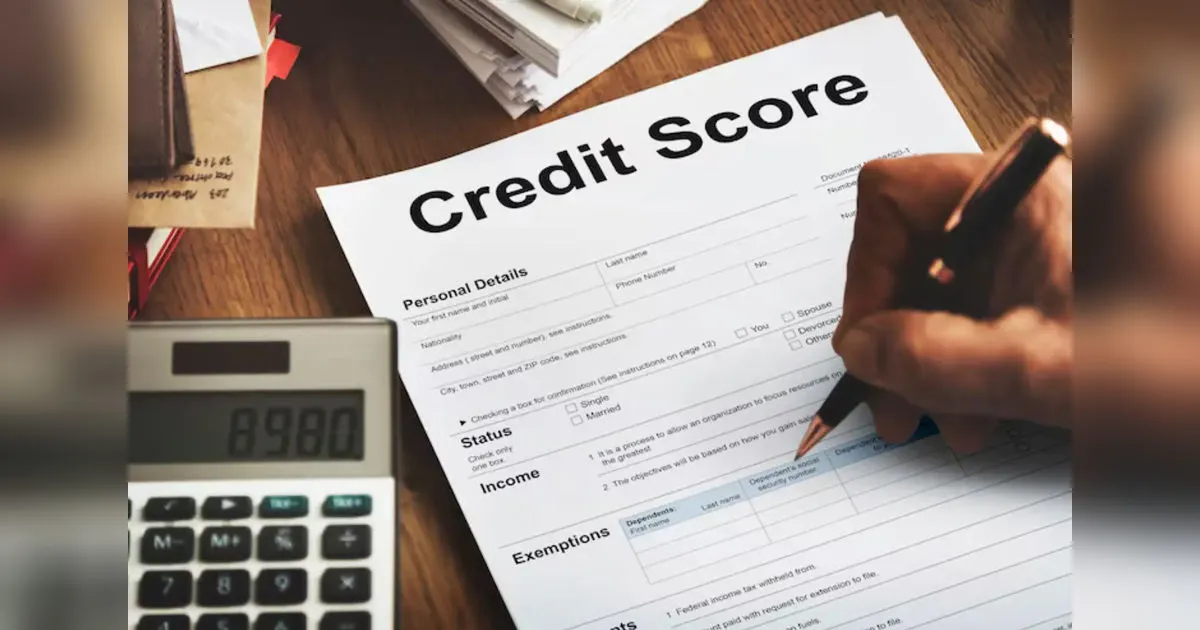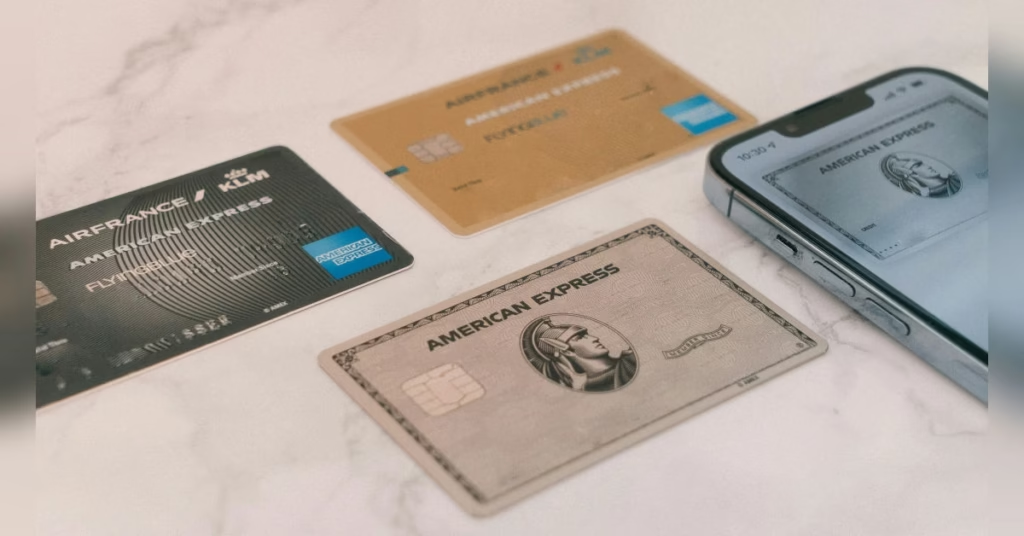Introduction
Your credit score is one of the most important numbers in your financial life. It determines your eligibility for loans, credit cards, mortgages, and even rental applications. In 2025, with rising interest rates and increasing financial scrutiny, maintaining a strong credit score is more crucial than ever. A higher credit score can save you thousands in interest payments, lower insurance premiums, and improve access to premium credit products.
Improving your credit score quickly requires understanding how scores are calculated, identifying mistakes or negative factors, and applying targeted strategies to fix them. Unlike long-term credit building, rapid improvement focuses on immediate actions that can have a measurable impact in a short period.
Related : The 50/30/20 Rule: Does It Really Work?
Best Books on Credit Score : Repair Your Credit Like the Pros
Table of Contents
Understanding Credit Scores
Related : Common Budgeting Mistakes and How to Avoid Them
What Is a Credit Score?
A credit score is a numerical representation of your creditworthiness. Lenders use it to predict the likelihood that you will repay debts on time. In the U.S., the most widely used credit scores are FICO and VantageScore, both ranging from 300 to 850.
- Excellent: 800–850
- Very Good: 740–799
- Good: 670–739
- Fair: 580–669
- Poor: Below 580
Higher scores mean lower risk for lenders, which translates into better interest rates and favorable loan terms.
Key Factors Affecting Your Credit Score
- Payment History (35% of FICO Score): Late payments, defaults, or collections significantly lower your score.
- Credit Utilization (30%): The ratio of credit used to total available credit; ideally below 30%.
- Length of Credit History (15%): Older accounts improve your score, as they show stability.
- Credit Mix (10%): Having a combination of credit types, such as credit cards, loans, and mortgages, demonstrates responsible management.
- New Credit Inquiries (10%): Applying for multiple credit lines in a short period can negatively affect your score.
Understanding these factors helps you prioritize actions that yield the most immediate improvements.
More Related Post: 10 Best Ways to Save Money Fast in 2025 and Beyond
Common Credit Score Mistakes
1. Late or Missed Payments
Even a single late payment can drop your score by 50–100 points, depending on your credit history.
2. High Credit Utilization
Maxed-out credit cards or balances over 30% of your credit limit signal financial stress to lenders.
3. Ignoring Errors on Credit Reports
Credit reports often contain inaccuracies, such as mistaken late payments or accounts that don’t belong to you.
4. Closing Old Accounts
While it may seem counterintuitive, closing old credit cards can reduce your credit history length and increase your utilization ratio.
5. Applying for Too Many New Accounts
Multiple credit applications in a short period lead to hard inquiries, temporarily lowering your score.
Quick Ways to Improve Your Credit Score
1. Pay Down High Balances
Reducing credit card balances immediately lowers your credit utilization ratio. Focus on cards close to their limits, aiming to get utilization below 30%—ideally below 10% for maximum impact.
2. Correct Errors on Credit Reports
Obtain free copies of your credit reports from Experian, Equifax, and TransUnion at AnnualCreditReport.com. Dispute any inaccuracies directly with the reporting agency. Correcting even one mistake can quickly boost your score.
3. Become an Authorized User
Ask a trusted family member or friend with excellent credit to add you as an authorized user on their account. This can instantly improve your score by adding positive payment history to your report.
4. Request a Higher Credit Limit
Increasing your credit limit without increasing your balance lowers your credit utilization ratio, improving your score. Contact your card issuer to request a limit increase.
5. Make Multiple Small Payments
Paying off your balance multiple times a month reduces reported utilization and shows consistent management of debt.
6. Avoid New Hard Inquiries
Hold off on opening new credit cards or loans until your score improves. Multiple inquiries in a short span can temporarily reduce your score.
7. Negotiate with Creditors
Sometimes creditors will remove late payment reports as a goodwill gesture, particularly if you have a strong history with them. A single deletion can improve your score quickly.
8. Use Experian Boost
This free tool allows you to add on-time utility, phone, and streaming payments to your Experian credit report, potentially increasing your FICO score instantly.
Long-Term Strategies to Improve Your Credit Score
1. Consistent On-Time Payments
Your payment history is the most significant factor in your credit score. Consistently paying bills on time reinforces positive credit behavior. Setting up automatic payments or calendar reminders ensures no payment is missed. Even small recurring payments, like subscription services or utility bills, can help if reported to credit bureaus.
2. Maintain Low Credit Utilization
Keeping credit card balances low relative to your credit limits demonstrates responsible credit use. Aim for under 30% utilization, though 10% or lower is ideal for maximum score improvement. Paying down balances before the statement closing date can lower the reported utilization for that month.
3. Avoid Closing Old Credit Accounts
Length of credit history contributes to 15% of your score. Keeping old, well-managed accounts open—even if unused—shows stability. Avoid closing old cards unless they carry high annual fees.
4. Diversify Credit Types
A mix of revolving credit (credit cards) and installment loans (auto loans, personal loans, mortgages) positively impacts your score. Responsible management across different types of credit shows lenders you can handle multiple financial obligations.
5. Limit New Credit Applications
Each hard inquiry can temporarily reduce your score by a few points. Only apply for new credit when necessary and space applications over several months. This strategy protects your score while maintaining access to credit.
6. Monitor Your Credit Regularly
Monitoring allows you to track improvements, spot errors early, and detect potential fraud. Use free tools like Credit Karma, Experian, and Mint to stay updated. Regular monitoring also helps you evaluate which strategies are most effective.
7. Settle Delinquent Accounts Strategically
If you have outstanding debts or collections, negotiate settlements with creditors. Some creditors will report “paid as agreed” or remove negative items after settlement, positively affecting your score.
8. Build Credit with Secured Credit Cards
For individuals with poor or no credit, secured credit cards backed by a deposit can help establish positive payment history. Responsible usage can quickly improve scores, particularly for those starting from a low baseline.
Tools and Apps to Improve Your Credit Score
- Credit Karma – Provides free credit scores, monitoring, and personalized recommendations.
- Experian – Offers score tracking, alerts for changes, and tools like Experian Boost.
- Mint – Budgeting and expense tracking that indirectly supports better credit habits.
- NerdWallet – Guides on credit score improvement and credit card comparisons.
- MyFICO – Official FICO score access and credit monitoring with detailed reports.
Using these tools can help you track progress, automate improvements, and stay informed about credit-related changes.
Real-Life Examples
Example 1: Rapid Improvement
Jessica, a 27-year-old marketing professional, had a credit score of 620. She disputed three errors on her credit report, paid down two high-balance credit cards, and became an authorized user on her mother’s account. Within three months, her score increased to 710. This demonstrates how targeted actions can produce quick results.
Example 2: Steady Long-Term Growth
Michael, a 35-year-old software engineer, focused on paying all bills on time, maintaining low utilization, and diversifying his credit. Over 18 months, his score improved from 650 to 780. While not instant, his strategy ensures sustainable financial health.
Practical Tips for Quick Score Boost
- Prioritize high-impact actions: Focus first on correcting errors and reducing high balances.
- Automate payments: Avoid missed payments with automatic transfers.
- Negotiate for goodwill adjustments: Ask creditors to remove occasional late payments.
- Use Experian Boost or similar tools: Add positive payment data quickly.
- Track progress monthly: Celebrate milestones to stay motivated.
Advanced Strategies to Boost Your Credit Score Quickly
1. Pay Off Collections Strategically
If you have accounts in collections, paying them off can improve your credit score over time. Request a “pay-for-delete” agreement with the creditor, where they remove the negative item from your report upon payment.
2. Increase Credit Limits Strategically
Requesting a credit limit increase on existing cards can reduce credit utilization, provided you do not increase your spending. Higher limits with stable balances reflect responsible credit behavior.
3. Use Experian Boost and Similar Services
Experian Boost allows you to add utility, phone, and streaming payments to your credit report, instantly improving your Experian FICO score. This is particularly effective for individuals with thin credit histories.
4. Become an Authorized User on a Strong Account
Adding yourself as an authorized user to a trusted family member’s or friend’s account can provide immediate positive impact on your credit score by leveraging their established payment history.
5. Targeted Debt Repayment
Focus on paying off high-interest or maxed-out cards first, using either the debt snowball or debt avalanche methods. Rapid reduction of high utilization accounts often produces visible improvements in scores within months.
6. Avoid Closing Old Accounts
Even if you don’t use them, older accounts maintain your average credit age and provide credit history depth. Closing old accounts can inadvertently lower your score.
Benefits of a Higher Credit Score

- Lower Interest Rates: High scores qualify for better loan and credit card rates.
- Better Loan Approval Odds: Lenders are more willing to extend credit to low-risk borrowers.
- Higher Credit Limits: Improved creditworthiness often results in higher credit availability.
- Lower Insurance Premiums: Some insurance companies use credit scores to determine rates.
- Peace of Mind: Financial security and flexibility increase when your credit is strong.
Best Books :
Repair Your Credit Like the Pros
How credit attorneys and certified consultants legally delete bad credit and restore your good name

External Sources
- Experian: How to Improve Your Credit Score
- FICO: Credit Score Education
- NerdWallet: How to Raise Your Credit Score
- Consumer Financial Protection Bureau (CFPB) – Credit Reports and Scores
- Investopedia: Credit Score Tips
FAQ Section (20 FAQs)
- What is a credit score?
A credit score is a numerical representation of your creditworthiness, used by lenders to assess the risk of lending you money. - Why is my credit score important?
A higher credit score leads to lower interest rates, better loan approvals, higher credit limits, and even lower insurance premiums. - How quickly can I improve my credit score?
Minor improvements can occur within a month by correcting errors and reducing credit utilization; significant changes may take 3–6 months. - What is considered a good credit score?
A FICO score above 670 is generally considered good, 740+ very good, and 800+ excellent. - How does paying down debt affect my score?
Reducing balances lowers credit utilization, which can quickly improve your score, especially if cards are near their limits. - Do late payments hurt my credit score?
Yes. Even a single late payment can reduce your score by 50–100 points depending on history. - Can correcting errors on my credit report improve my score?
Absolutely. Disputing inaccuracies like wrong late payments or accounts not yours can result in immediate score improvement. - What is credit utilization and why is it important?
Credit utilization is the ratio of your credit card balances to total credit limits. Low utilization signals responsible credit management. - Does becoming an authorized user help my credit?
Yes. Positive payment history from the primary account holder is added to your report, potentially boosting your score. - What is Experian Boost?
A free tool that adds utility, phone, and streaming payments to your Experian credit report, instantly improving your FICO score. - Should I close old credit accounts?
No. Closing old accounts reduces average account age and available credit, which can lower your score. - How do hard inquiries affect my score?
Each hard inquiry can lower your score slightly; multiple inquiries in a short time can have a bigger impact. - Is paying off collections worth it?
Yes. Settling or negotiating a collection can improve your score and prevent legal action from creditors. - Do secured credit cards help build credit?
Yes. Responsible use of secured cards establishes positive credit history for those with poor or no credit. - How long does it take to see results from credit improvement actions?
Some actions like correcting errors or reducing utilization can show results in 30–60 days; long-term improvements may take 6–12 months. - Can I improve my score if I have no credit history?
Yes. Start with secured cards, small loans, or becoming an authorized user to establish positive history. - What is the difference between FICO and VantageScore?
Both are credit scoring models; FICO is widely used by lenders, while VantageScore is increasingly popular and uses slightly different calculation methods. - Does paying off a loan early improve my score?
It may not immediately improve your score, but it reduces debt obligations and strengthens your overall financial profile. - Can budgeting help improve my credit score?
Yes. Effective budgeting ensures bills are paid on time and prevents overspending, which protects your score. - How often should I check my credit score?
Monthly monitoring is recommended to track improvements, detect errors, and guard against fraud.
More Categories
Harsh Muchhal is a Software Engineer and Financial Analyst passionate about helping people understand the world of finance and technology in simple, practical ways. With experience in both software development and financial analysis, he blends technical knowledge with real-life money insights to make complex topics easy for everyone. Harsh shares valuable guides, tips, and updates on personal finance, investing, credit cards, and the latest tech innovations — helping readers make smarter choices in today’s fast-changing digital world.


Pingback: Best Credit Cards for Beginners in the USA - MY FINTECH INSIGHT
Pingback: What Happens If You Never Use Your Credit Card? - MY FINTECH INSIGHT
Pingback: Personal Loans vs Credit Cards: Which is Better? - MY FINTECH INSIGHT
Pingback: How Student Loans Work and Smart Repayment Tips - MY FINTECH INSIGHT